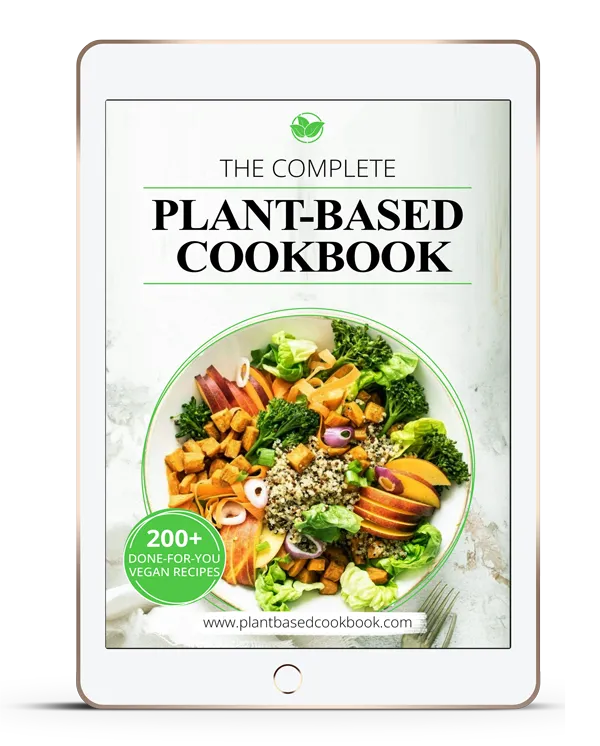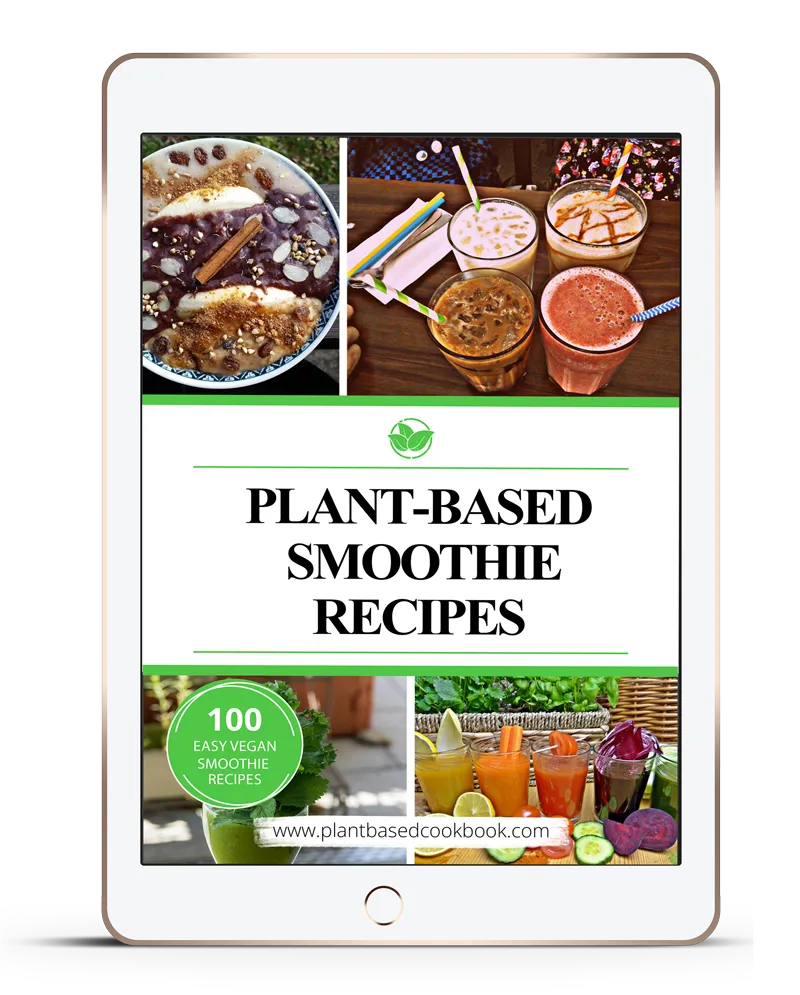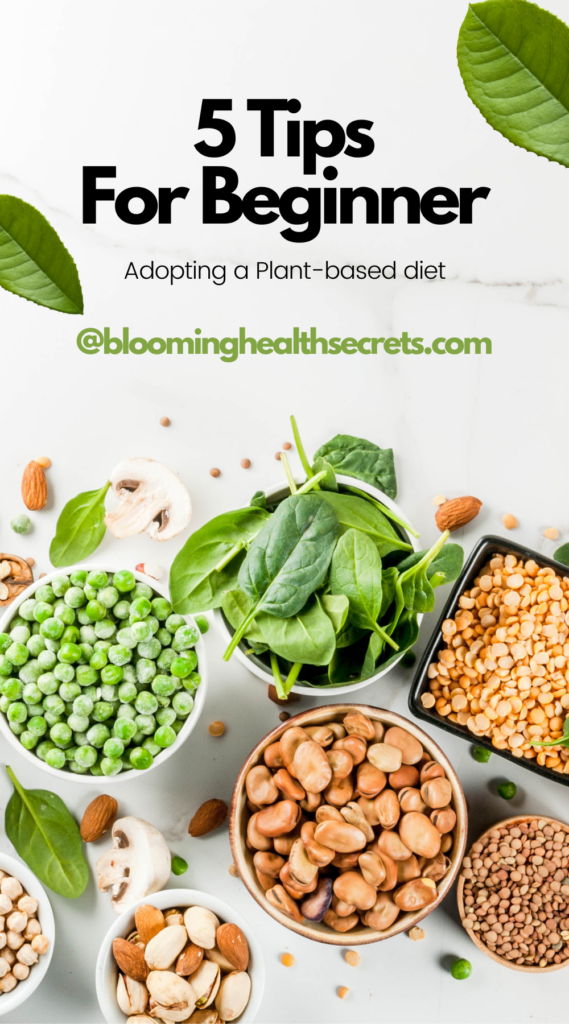Plant-Based Diet for Beginners: A Green Start to Healthier Living
In a world where health consciousness is on the rise, plant-based diets have emerged as a popular choice for those seeking a healthier lifestyle.
Whether you’re motivated by ethical concerns, environmental sustainability, or simply a desire to improve your well-being, embarking on a plant-based journey can be a transformative experience.
But if you are starting out, the prospect of transitioning to a diet free from animal products may seem daunting. Fear not! In this comprehensive guide, we’ll explore the ins and outs of adopting a plant-based diet for beginners, offering practical tips, delicious recipes, and invaluable insights to help you thrive on your green journey.
Understanding the Essence of Plant-Based Diets
Before diving into the nitty-gritty of plant-based eating, it’s essential to understand what exactly constitutes a plant-based diet.
Simply put, a plant-based diet is centered around whole, unprocessed plant foods such as fruits, vegetables, grains, legumes, nuts, and seeds. It eschews animal products like meat, dairy, and eggs, as well as highly processed foods laden with artificial additives and preservatives.
Breaking Down Misconceptions
One of the most common misconceptions about plant-based diets is that they’re restrictive and lacking in flavor and variety.
However, nothing could be further from the truth! Plant-based cuisine is incredibly diverse, encompassing a myriad of flavors, textures, and culinary traditions from around the globe.
From vibrant salads and hearty soups to savory stir-fries and decadent desserts, there’s no shortage of delicious options to tantalize your taste buds.

Plant-Based Nutrition: The Basics
Contrary to popular belief, plant-based diets can provide all the nutrients your body needs to thrive, including protein, iron, calcium, and essential vitamins and minerals.
By incorporating a wide variety of plant foods into your diet and paying attention to your nutritional needs, you can easily meet your daily requirements without the need for animal products.
Transitioning to a Plant-Based Diet for Beginners
Making the switch to a plant-based diet doesn’t have to be an all-or-nothing endeavor.
In fact, many people find that taking gradual steps towards plant-based eating is more sustainable in the long run.
Start by incorporating more plant foods into your meals and gradually reducing your intake of animal products.
Experiment with meatless Mondays, explore new plant-based recipes, and gradually phase out animal products from your diet at a pace that feels comfortable for you.

Practical Tips for Beginners
Transitioning to a plant-based lifestyle can feel overwhelming at first, but with a little planning and preparation, it can be a smooth and enjoyable process. Here are some practical tips to help you get started:
- Stock Up on Plant-Based Staples:
Fill your pantry with staples like beans, lentils, quinoa, brown rice, nuts, seeds, and a variety of spices and herbs to add flavor to your meals. - Embrace Whole Foods:
Focus on incorporating whole, minimally processed plant foods into your diet, such as fruits, vegetables, whole grains, and legumes, which are rich in nutrients and fiber. - Get Creative in the Kitchen:
Experiment with new ingredients and recipes to keep things interesting and prevent boredom. Explore different cooking methods, flavor combinations, and cuisines to discover what you enjoy most. - Stay Prepared:
Plan your meals ahead of time, batch cook and meal prep to save time during busy weekdays, and always have healthy plant-based snacks on hand to curb cravings. - Listen to Your Body:
Pay attention to how different foods make you feel and adjust your diet accordingly. Everyone’s nutritional needs are unique, so listen to your body and nourish it with foods that make you feel your best.
While transitioning to a plant-based diet can be incredibly rewarding, it’s not without its challenges. From navigating social situations to overcoming cravings, here are some common challenges you may encounter along the way and how to overcome them:
- Social Pressure:
Dealing with skepticism or criticism from friends and family who may not understand or support your dietary choices can be challenging. Educate yourself about the benefits of a plant-based diet and politely assert your choices without feeling the need to justify or defend them. - Cravings for Animal Products:
It’s perfectly normal to experience cravings for familiar foods, especially in the early stages of transitioning to a plant-based diet. Experiment with plant-based alternatives, satisfy your cravings with healthier options, and remind yourself of the reasons why you chose to adopt a plant-based lifestyle. - Nutritional Concerns:
Ensuring that you’re getting all the nutrients your body needs on a plant-based diet can be a concern for some beginners. Focus on eating a varied and balanced diet, supplementing as needed, and consulting with a healthcare professional or registered dietitian if you have specific nutritional concerns. - Eating Out:
Finding plant-based options when dining out or attending social events can be challenging, especially in areas where plant-based options are limited. Research restaurant menus ahead of time, communicate your dietary preferences to waitstaff, and don’t be afraid to ask for modifications to accommodate your needs. - Staying Motivated:
Maintaining motivation and staying committed to your plant-based lifestyle in the face of obstacles or setbacks can be tough at times. Surround yourself with like-minded individuals for support, set realistic goals, and celebrate your successes along the way to stay motivated and inspired.



Savoring the Flavors: Plant-Based Recipes and Meal Prep
One of the best parts of adopting a plant-based diet is the opportunity to explore a whole new world of flavors and culinary possibilities.
From hearty salads and comforting stews to indulgent desserts and satisfying snacks, there’s no shortage of delicious plant-based recipes to suit every taste and occasion.
Whether you’re a seasoned chef or a kitchen novice, here are some simple and satisfying plant-based recipes to inspire your culinary adventures:
- Vibrant Veggie Stir-Fry:
Whip up a colorful stir-fry packed with your favorite vegetables, tofu or tempeh, and a flavorful sauce for a quick and nutritious meal that’s ready in minutes. - Hearty Lentil Soup:
Simmer lentils, vegetables, herbs, and spices in a savory broth for a comforting and satisfying soup that’s perfect for chilly evenings. - Quinoa Salad with Fresh Herbs:
Toss cooked quinoa with fresh herbs, diced vegetables, lemon juice, and olive oil for a light and refreshing salad that’s perfect for lunch or as a side dish. - Creamy Avocado Pasta:
Blend ripe avocados with garlic, lemon juice, and basil to create a creamy sauce that pairs perfectly with cooked pasta for a simple yet indulgent meal. - Chickpea Salad Sandwich:
Mash chickpeas with vegan mayonnaise, celery, red onion, and spices for a delicious and protein-packed sandwich filling that’s perfect for lunch on the go.
Plant-Based Diet for Beginners: Meal Prep Mastery
Meal prep is the secret weapon of successful plant-based eaters, helping to save time, money, and stress throughout the week.
By spending just a few hours each week preparing and portioning out meals and snacks in advance, you can ensure that you always have healthy and delicious options on hand when hunger strikes.
Here are some meal prep tips to help you streamline your plant-based cooking routine:
- Plan Your Meals:
Take some time at the beginning of each week to plan out your meals and snacks for the upcoming days. Consider your schedule, dietary preferences, and nutritional needs when selecting recipes and creating your shopping list. - Batch Cook Staples:
Cook large batches of grains, beans, and other staples ahead of time and store them in the refrigerator or freezer for easy meal assembly throughout the week. - Prep Your Produce:
Wash, chop, and portion out fruits and vegetables for quick and convenient snacking or cooking. Store them in airtight containers or reusable bags to keep them fresh longer. - Divide and Conquer:
Portion out meals and snacks into individual containers or meal prep containers for easy grab-and-go convenience. Label containers with the contents and date to help you stay organized and prevent food waste. - Stay Flexible:
Don’t be afraid to mix and match ingredients and recipes to keep things interesting and prevent boredom. Use up leftovers creatively and adjust your meal prep routine as needed to suit your changing tastes and schedule.



Quick and Easy Plant-Based Meal Ideas
Need some inspiration for quick and easy plant-based meals to whip up on busy weeknights? Look no further! Here are some simple and satisfying meal ideas that can be prepared in 30 minutes or less:
- Vegetable Stir-Fry:
Sauté your favorite vegetables with tofu or tempeh and a flavorful sauce for a quick and nutritious stir-fry that’s ready in minutes. - Chickpea Salad:
Toss canned chickpeas with diced vegetables, herbs, lemon juice, and olive oil for a simple and satisfying salad that’s perfect for lunch or dinner. - Sweet Potato and Black Bean Tacos:
Fill soft tortillas with roasted sweet potatoes, black beans, avocado, salsa, and cilantro for a delicious and satisfying taco night. - Pasta Primavera:
Cook your favorite pasta and toss it with sautéed vegetables, garlic, olive oil, and fresh herbs for a quick and comforting meal that’s perfect for busy weeknights. - Quinoa Buddha Bowl:
Layer cooked quinoa with roasted vegetables, avocado, greens, and your favorite dressing for a nourishing and satisfying bowl that’s packed with flavor and nutrients.
Thriving on Plants: Nourishment Beyond Food
While the focus of a plant-based lifestyle is often on the foods we eat, true nourishment extends beyond the plate to encompass all aspects of our lives. From physical health to mental well-being, here are some ways that embracing a plant-based lifestyle can help you thrive:
- Physical Health Benefits:
Plant-based diets have been linked to numerous health benefits, including lower risk of heart disease, type 2 diabetes, certain cancers, and obesity. By filling your plate with nutrient-rich plant foods, you can nourish your body from the inside out and support overall health and vitality. - Mental Well-Being:
In addition to promoting physical health, plant-based diets may also have positive effects on mental well-being. Research suggests that diets rich in fruits, vegetables, whole grains, and legumes may be associated with reduced risk of depression, anxiety, and other mental health conditions. - Environmental Sustainability:
Beyond the personal health benefits, adopting a plant-based lifestyle can also have positive implications for the planet. Animal agriculture is a major contributor to environmental issues such as deforestation, water pollution, and greenhouse gas emissions. By choosing plant-based foods, you can reduce your environmental footprint and help protect the planet for future generations.
Mindful Eating and Conscious Consumption
In today’s fast-paced world, it’s all too easy to rush through meals without giving much thought to what we’re eating or how it affects our bodies and the planet.
Mindful eating is the practice of paying attention to the sensory experience of eating, including the taste, texture, and aroma of food, as well as the thoughts and emotions that arise during the eating process.
By practicing mindful eating and adopting a more conscious approach to consumption, we can cultivate a deeper appreciation for the food we eat, make more informed choices about what we put into our bodies, and develop a greater sense of connection to ourselves and the world around us.
Plant-Based Diet for Beginners: Physical and Mental Health Benefits
The health benefits of plant-based diets are well-documented, with numerous studies linking them to lower rates of chronic diseases such as heart disease, type 2 diabetes, and certain cancers.
By focusing on whole, nutrient-rich plant foods like fruits, vegetables, whole grains, and legumes, plant-based eaters can nourish their bodies with the vitamins, minerals, and antioxidants they need to thrive.
In addition to promoting physical health, plant-based diets may also have positive effects on mental well-being. Research suggests that diets rich in fruits, vegetables, whole grains, and legumes may be associated with reduced risk of depression, anxiety, and other mental health conditions.
By prioritizing plant-based foods and adopting a more mindful approach to eating, we can support not only our physical health but also our mental and emotional well-being.

Sustainability and Environmental Impact
In addition to the health benefits, adopting a plant-based lifestyle can also have positive implications for the planet. Animal agriculture is a major contributor to environmental issues such as deforestation, water pollution, and greenhouse gas emissions.
By choosing plant-based foods, we can reduce our environmental footprint and help protect the planet for future generations. Plant-based diets require fewer resources to produce, including land, water, and energy, making them a more sustainable choice for feeding a growing global population.
By making simple swaps in our diets and choosing plant-based options more often, we can contribute to a healthier, more sustainable future for ourselves and the planet.
Conclusion: Growing Greener Together
In conclusion, embarking on a plant-based journey is not only good for your health but also for the planet and all its inhabitants.
By embracing whole, plant foods and adopting a more mindful approach to eating, you can nourish your body, mind, and soul while reducing your environmental footprint and promoting sustainability.
Whether you’re motivated by health concerns, ethical considerations, or a desire to make a positive impact on the world, transitioning to a plant-based diet is a simple yet powerful step you can take towards a healthier, more compassionate future.
So why wait? Start sowing the seeds of change today and join the growing movement towards plant-based living!
FAQs about Plant-Based Diets for Beginners:
- Is a plant-based diet suitable for everyone, including athletes and children?
Yes, plant-based diets can be suitable for individuals of all ages and activity levels, provided they are well-planned and nutritionally balanced.
- How can I ensure I’m getting enough protein on a plant-based diet for beginners?
Protein can be found in a variety of plant foods, including beans, lentils, tofu, tempeh, nuts, seeds, and whole grains. Eating a variety of these foods throughout the day can help you meet your protein needs.
- What are some common nutrient deficiencies to watch out for on a plant-based diet for beginners?
While plant-based diets can be nutritionally adequate when properly planned, some nutrients to pay attention to include vitamin B12, vitamin D, omega-3 fatty acids, iron, calcium, and zinc. Consider incorporating fortified foods or supplements as needed.
- Are plant-based diets more expensive than traditional diets?
Plant-based diets can be cost-effective, especially when focusing on whole, minimally processed plant foods like grains, legumes, fruits, and vegetables. Buying in bulk, shopping seasonally, and meal prepping can help save money on groceries.
- How can I deal with cravings for animal products when transitioning to a plant-based diet for beginners?
Cravings for familiar foods are normal when transitioning to a plant-based diet for beginners. Experiment with plant-based alternatives, satisfy your cravings with healthier options, and remind yourself of the reasons why you chose to adopt a plant-based lifestyle.
In summary, transitioning to a plant-based diet for beginners can be a rewarding and empowering journey towards better health, environmental sustainability, and compassion for all living beings.
By embracing whole, plant foods, practicing mindful eating, and making informed choices about what we put on our plates, we can nourish our bodies, protect the planet, and create a brighter future for generations to come.
So why not take the first step today and embark on your own plant-based adventure? Your body, the planet, and all its inhabitants will thank you for it!
References
- “The China Study” by T. Colin Campbell and Thomas M. Campbell II (2005):
This landmark book presents findings from the China-Cornell-Oxford Project, a comprehensive study of nutrition and health that spanned over two decades. The study observed dietary patterns and health outcomes in rural China and found correlations between a plant-based diet and reduced risk of chronic diseases, including heart disease, cancer, and diabetes. - “Mediterranean Diet and Cardiovascular Health: A Comprehensive Review” by Martínez-González et al. (2019):
This review examines the Mediterranean diet, which emphasizes plant-based foods, such as fruits, vegetables, whole grains, legumes, nuts, and olive oil, along with moderate consumption of fish, poultry, and dairy. The review synthesizes evidence from numerous studies and concludes that adherence to the Mediterranean diet is associated with lower risk of cardiovascular disease. - “Vegetarian Dietary Patterns and Cardiovascular Disease” by Dinu et al. (2017):
This systematic review and meta-analysis investigated the association between vegetarian dietary patterns and cardiovascular disease risk. The study analyzed data from multiple observational studies and found that vegetarian diets were associated with a lower risk of ischemic heart disease and lower total cholesterol levels compared to non-vegetarian diets. - “Plant-Based Diets: A Physician’s Guide” by Physicians Committee for Responsible Medicine (2010):
This guide, authored by a group of physicians, provides evidence-based recommendations for adopting a plant-based diet for optimal health. It synthesizes findings from various studies and clinical trials, highlighting the benefits of plant-based diets in preventing and managing chronic diseases, such as obesity, type 2 diabetes, and hypertension. - “The Oxford Vegetarian Study: An Overview” by Key et al. (1999):
This cohort study investigated the health effects of vegetarian diets in the United Kingdom. The study followed over 11,000 participants, including vegetarians and non-vegetarians, for several years and found that vegetarians had a lower risk of ischemic heart disease mortality compared to non-vegetarians, supporting the protective effects of plant-based diets against heart disease. - “Nutrient Profiles of Vegetarian and Nonvegetarian Dietary Patterns” by Rizzo et al. (2013):
This cross-sectional study compared the nutrient profiles of vegetarian and nonvegetarian dietary patterns using data from the National Health and Nutrition Examination Survey (NHANES). The study found that vegetarian diets were higher in fiber, vitamins C and E, potassium, and magnesium, while lower in saturated fat and cholesterol compared to nonvegetarian diets. - “Vegetarian, Vegan Diets and Multiple Health Outcomes: A Systematic Review with Meta-Analysis of Observational Studies” by Dinu et al. (2021):
This systematic review and meta-analysis synthesized evidence from observational studies on the health effects of vegetarian and vegan diets. The analysis found that both vegetarian and vegan diets were associated with lower risk of ischemic heart disease, hypertension, type 2 diabetes, and certain cancers compared to non-vegetarian diets. - “The Adventist Health Study-2: A Comprehensive Lifestyle Study” by Fraser et al. (2009):
This cohort study examined the association between lifestyle factors, including diet, and health outcomes among Seventh-day Adventists in the United States and Canada. The study found that adherence to a vegetarian diet was associated with lower risk of several chronic diseases, including cardiovascular disease, diabetes, and certain cancers. - “Position of the Academy of Nutrition and Dietetics: Vegetarian Diets” by Melina et al. (2016):
This position paper by the Academy of Nutrition and Dietetics provides evidence-based recommendations for vegetarian diets. It highlights the health benefits of plant-based diets, including reduced risk of chronic diseases, and offers practical guidance for healthcare professionals and individuals interested in adopting vegetarian diets. - “Vegetarian Diets and Weight Reduction: A Meta-Analysis of Randomized Controlled Trials” by Huang et al. (2016):
This meta-analysis examined the effectiveness of vegetarian diets for weight reduction by analyzing data from randomized controlled trials. The analysis found that vegetarian diets were associated with greater weight loss compared to non-vegetarian diets, suggesting that plant-based diets may be a viable strategy for weight management.
These studies provide valuable insights into the health benefits of plant-based diets and offer evidence-based recommendations for individuals interested in adopting a plant-based lifestyle.





